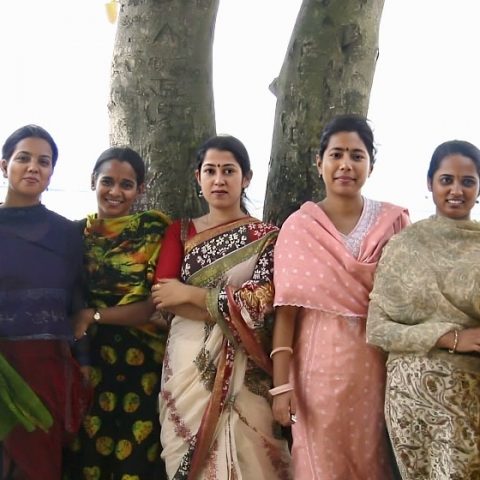Over the last four decades, Bangladesh has gone through massive liberalization and commercialization of traditional agriculture and experienced increasing market integration. The transition into a commercial, market-oriented economy often leads to changes in social dynamics, for instance by increasing wealth inequality and levels of education. A new study in Evolutionary Human Sciences from icddr,b and collaborators — led by Susan Schaffnit and Mary Shenk from Pennsylvania State University — examined the effect of market integration on love and parent-arranged marriage decisions and outcomes in Matlab, Bangladesh. With more access to education and wealth, are youths more likely to take charge of their own important decisions like marriage?
While the parent-child relationship involves much cooperation and sharing of resources, it also carries potential for conflict in circumstances surrounding the inheritance of property and making marriage decisions. An offspring’s marriage strongly impacts their fitness and that of subsequent generations. It also often benefits parents financially and socially, through transfers at the time of marriage and expanding their social network, respectively. As these do not directly benefit the offspring or ensure a successful marriage, parents and offspring may disagree on the specifics of when and to whom to get married.
Arranged marriages are most common in societies where wealth is inherited. Parents wield their control over resources to negotiate marriages and secure spouses for their children, while also often trying to form economically or politically advantageous family alliances. In patriarchal and patrilocal societies, daughters tend to be at a further disadvantage in the power imbalance with parents, as they are less likely to have their own income and often inherit a smaller share than sons. The study thus focused on the effects of market integration on marriage decisions among women. The authors took advantage of data previously collected from a community in transition — still largely practicing smallholder farming but increasingly participating in market-based wage labor — in Matlab, Bangladesh.

Arman Aziz, CC BY 2.5
Market integration involves a move away from traditional, agricultural subsistence toward increased participation in commercial markets. As market integration progresses, some amount of education becomes necessary to remain competitive in labor markets, which also increases the social value of education. In the context of the parent-daughter relationship, this results in increased parental investment in the daughter via education, often to both provide economic security and to secure a desirable spouse. In the process, the daughter gains more economic autonomy and social influence, which may strengthen their bargaining power when negotiating decisions over their own marriage — as previously observed in rural Tanzania and among the Ju/’hoansi people of South Africa. The current study in Matlab found incipient effects of market integration on marriage dynamics.
While parent-arranged marriages were still the most common type of marriage in this community, the authors noted an increase in love marriages in recent times — occurring more often among younger women. Women in love marriages tended to be more educated than those in arranged marriages, possibly reflecting recent progress in education driven by increased market integration. Interestingly, the extent of familial market integration, as indicated by father’s occupation, was not linked to whether the daughter had a love or arranged marriage. This suggests that the rise in love marriages may be a wider social trend driven by greater market integration across the community. The type of marriage was not linked to spouse status — measured via years of education and social status of occupation. Instead, both father’s education and daughter’s education were linked to spouse status, suggesting that parental investment in daughter’s education benefits the daughter regardless of whether the marriage is parent-arranged.

Authors’ visualization of traditional vs. market-integrated pathways to a high-quality spouse/marriage
The study appears to have caught a market-integrating community at the cusp of a social transition in which new avenues of marriage are becoming more available to young women. It will be interesting to continue to observe the evolution of marriage dynamics in this community through the Matlab Health and Demographic Surveillance System.
For a more exhaustive description of the study and its findings, check out the authors’ own blog post on the paper here.

